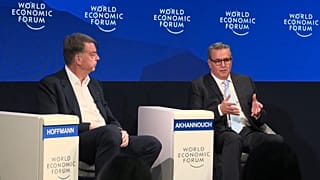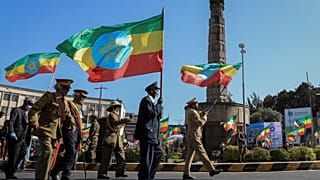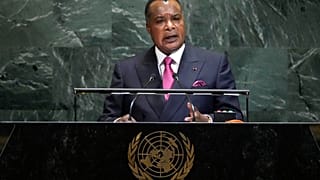Switzerland
Get ready for several years of even more record-breaking heat that pushes Earth to more deadly, fiery and uncomfortable extremes, two of the world's top weather agencies forecast.
There's an 80% chance the world will break another annual temperature record in the next five years, and it's even more probable that the world will again exceed the international temperature threshold set 10 years ago, according to a five-year forecast released Wednesday by the World Meteorological Organisation (WMO) and the UK Meteorological Office.
And for the first time there’s a chance — albeit slight — that before the end of the decade, the world's annual temperature will shoot past the Paris climate accord goal of limiting warming to 1.5 degrees Celsius and hit a more alarming 2 degrees Celsius of heating since the mid-1800s, the two agencies said.
There's an 86% chance that one of the next five years will pass 1.5 degrees and a 70% chance that the five years as a whole will average more than that global milestone, they figured.
World 1.4 degrees hotter than in 1850
The projections come from more than 200 forecasts using computer simulations run by 10 global centers of scientists.
Ten years ago, the same teams figured there was a similar remote chance — about 1% — that one of the upcoming years would exceed that critical 1.5 degree threshold and then it happened last year. This year, a 2-degree Celsius above pre-industrial year enters the equation in a similar manner. Two degrees of warming is the secondary threshold, the one considered less likely to break, set by the 2015 Paris agreement.
Technically, even though 2024 was 1.5 degrees Celsius warmer than pre-industrial times, the Paris climate agreement’s threshold is for a 20-year time period, so it has not been exceeded.
Factoring in the past 10 years and forecasting the next 10 years, the world is now probably about 1.4 degrees Celsius hotter since the mid 1800s, WMO climate services director Chris Hewitt estimated.
Ice in the Arctic — which will continue to warm 3.5 times faster than the rest of the world — will melt and seas will rise faster, experts said.
What tends to happen is that global temperatures rise like riding on an escalator, with temporary and natural El Niño weather cycles acting like jumps up or down on that escalator, scientists said.
But lately, after each jump from an El Niño, which adds warming to the globe, the planet doesn't go back down much, if at all.













01:00
Western France floods deepen after 35 days of rain
01:00
Spain floods: Storm Leonardo forces 4,000 evacuations in Andalusia
01:03
Moroccan security forces carry out evacuations as floods hit north
00:50
UN says climate shocks driving displacement in Mozambque
00:56
Mozambique: crocodiles appear in towns amid floods
Go to video
South Africa floods kill 38 in Limpopo and Mpumalanga